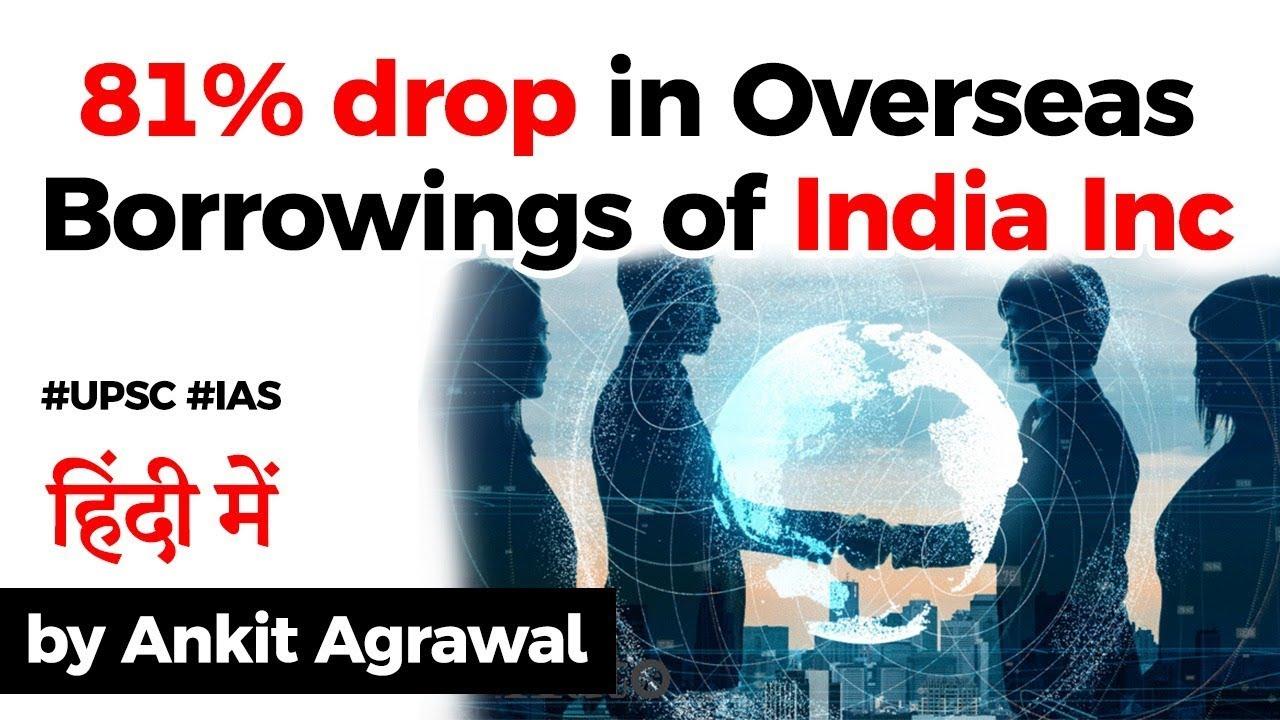Table of Contents
What is ECB?
- It is an instrument used in India to facilitate Indian companies to raise money outside the country in foreign currency.
- The government of India permits Indian corporates to raise money via ECB for expansion of existing capacity as well as for fresh investments.
- It can be in the form of bank loans, bonds, etc.
- ECB can be availed by either automatic route or by approval route.
- Under automatic route, if a company passes all the prescribed norms, it can raise money without any prior approval.
- For specific pre-specified sectors, the borrowers have to take explicit permission of the government/The Reserve bank of India (RBI) before borrowing through ECB.
Advantages of ECB
- The cost of funds is usually cheaper from external sources.
- Improve the profitability of the companies.
- Availability of larger market.
- The domestic economy also enjoys benefits.
Disadvantages
- Funds at a cheaper rate may bring in lax attitude on the company’s side resulting in excessive borrowing.
- Exchange rate risk to the company.
- High debt on the nation.

- Overseas borrowings of India Inc plunged to an 11-quarter low to $3.51 billion during the first quarter of the current fiscal.
- The overseas borrowings of Indian corporates for the same quarter last year stood at $12.04 billion, while borrowings during Q4 FY20 touched a peak of $18.97 billion.
- On a year-on-year basis,
- ECBs for import of capital goods fell to $198 million ($705 million) in Q1FY21.
- Borrowings for ‘modernisation’ purpose fell sharply to $146 million ($1,269 million).
- ECBs towards infrastructure development also fell to $76 million ($500 million) during this period.
- “With the lockdown that took place, everything has come to a halt.
- Companies don’t have any investment plans since there are a lot of uncertainties about the future.
- That’s the main reason why overall borrowings have come down,”
- said Madan Sabnavis, Chief Economist at CARE Ratings.

Why ECB was preferred by companies?
- Amid heightened risk aversion in the domestic debt market, coupled with a low interest rate regime abroad,
- External commercial borrowings (ECBs) have been one of the preferred routes of fund raising for
- Indian companies in the last few years.
- Besides, a slew of rationalisation measures taken by the RBI allowing more sectors to tap overseas markets also fuelled this growth.
- Consequently, India Inc’s ECBs touched a historic high of $51.71 billion in FY20.
But still why not domestic borrowing?
- Despite RBI slashing the reverse repo rate to disincentive banks from parking their excess funds with them,
- Banks preferred to park their excess funds with the central bank at a low interest rate rather than risk lending it.
- According to the RBI’s latest July report,
- Banks parked nearly ₹8-lakh crore under reverse repo on a daily average basis in the month of May,
- Against an average of ₹2.4-lakh crore during the March quarter.
Latest Burning Issues | Free PDF






















 WhatsApp
WhatsApp